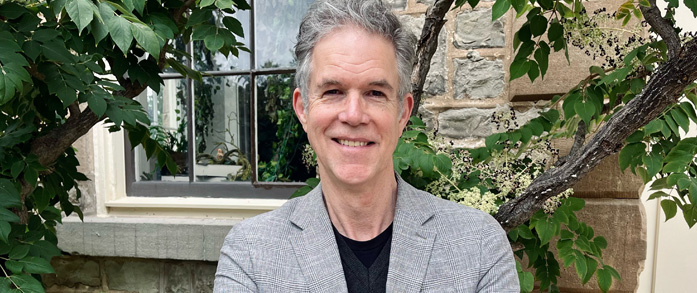
This column was mostly written in September of 2021, after playing our first festival in front of real people since the start of the pandemic. It was at Thomas Point Beach.
It felt so good to be back on a non-virtual stage, especially in such a beautiful place, but just to make sure we still had the ability to think on our feet, fate decided to make the evening show a little more interesting than we’d bargained for: As sometimes happens at music festivals, unfortunately, there was a medical emergency in the audience, and just as I was introducing a gospel song, an ambulance and other emergency vehicles were arriving.
This is where it’s necessary to make an important decision about the appropriate response: do you keep performing to put the audience at ease and perhaps make the patient feel less like all eyes are on his or her situation? Do you stop playing to allow a distraction-free period of time for the health care professionals who are handling the crisis? In the indecision of the moment, we opted to perform the gospel song that had already been introduced, especially since it was a song about the importance of the 100th sheep joining the flock of 99. We didn’t perform one about looking forward to death (because we do have those in the repertoire). After that, we halted the show. For one thing, I’d hate to have one EMT misunderstanding another EMT’s question or instruction because it couldn’t be heard over the music: “No, I said START the IV, not stop it!”
We also paused the show because next up on our set was Riding the Chief, a happy song about a train ride through the midwest and southwest, which was to be followed by Marshall Wilborn singing Handy Man, which contains lyrics like, “I’m real rough just like a tornado, I’m coming over to bake your potato . . .” Somehow those songs didn’t feel like they fit with the gravity of the situation.
There was a happy ending to this: the patient ended up walking away from the incident on his own two feet, feeling relatively fine, though apparently he was clinically dead when medical personnel were working on him. Once again, we have the expertise of medical professionals to be thankful for, which in this case also included some skilled fiddle-playing EMTs (the “skilled” refers to their medical competence—I haven’t heard their fiddle playing, though I’m sure that’s good, too).
Some bands might be quick to update their bio material to include the claim, “audience members have actually been brought back from the dead during their shows.” Maybe this is my poor self-promotional instinct at work, but we decided against that.
This potentially tragic situation got me thinking about past performing situations that didn’t end so well: We were booked at a club in Quebec once, and while we were warming up in a back room, I noticed that a hush had come over the audience. I immediately worried that the MC had introduced us early and had failed to tell us, because that has happened more than once. It turns out that a member of the audience had actually died, and unlike the gentleman in Maine, he was not revivable.
Again we were faced with a difficult decision, until a couple of friends of the deceased said, “You should do your show exactly as planned. He was a huge fan of bluegrass music and that’s what he would want you to do.” Backstage at Thomas Point Beach I spoke to mandolinist Tristan Scroggins, who was there with Missy Raines and Allegheny, and he described an identical experience, with the same assertion from friends or acquaintances that playing the show was what the newly departed “would have wanted.”
The question immediately comes to mind: how do they know? Did he state in paragraph five of his will, “Should I pass away suddenly right before a bluegrass concert, please instruct the band to play the show as planned. I would also appreciate it if they would work in the Salty Dog Blues.”
If you’re a performer and you find yourself in this unfortunate situation someday, and the people around you insist that the deceased would want the show to go on, there’s nothing wrong with granting that wish. It might not be a bad idea, though, to find out if the people saying this actually knew the person and aren’t just making a convenient assumption based on the fact that they travelled 45 miles to get there and want to see a bluegrass show, pre-show tragedy or not.
Before playing the show, then, it might also be good to have a friend or family member deliver a eulogy for the dead person, maybe including the claim that they would have wanted the show to continue. This takes some of the responsibility off of you and sets a respectful tone. This would also serve to flush out anyone just pretending to know the person who died (one would hope).
It would also be best to leave O Death, or worse, Cabin of Death, off the set list that night.




